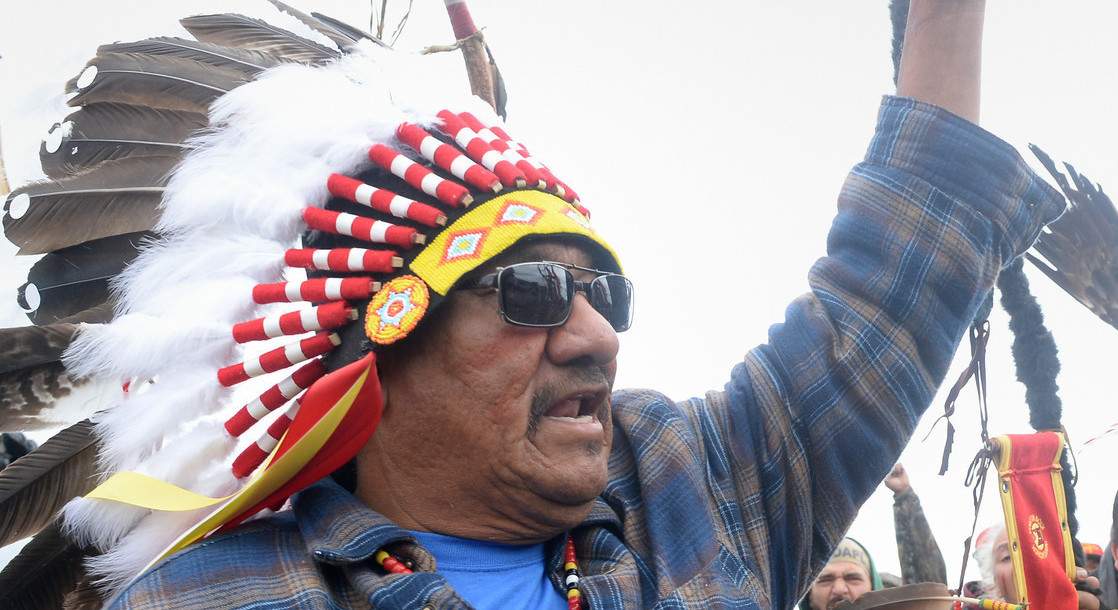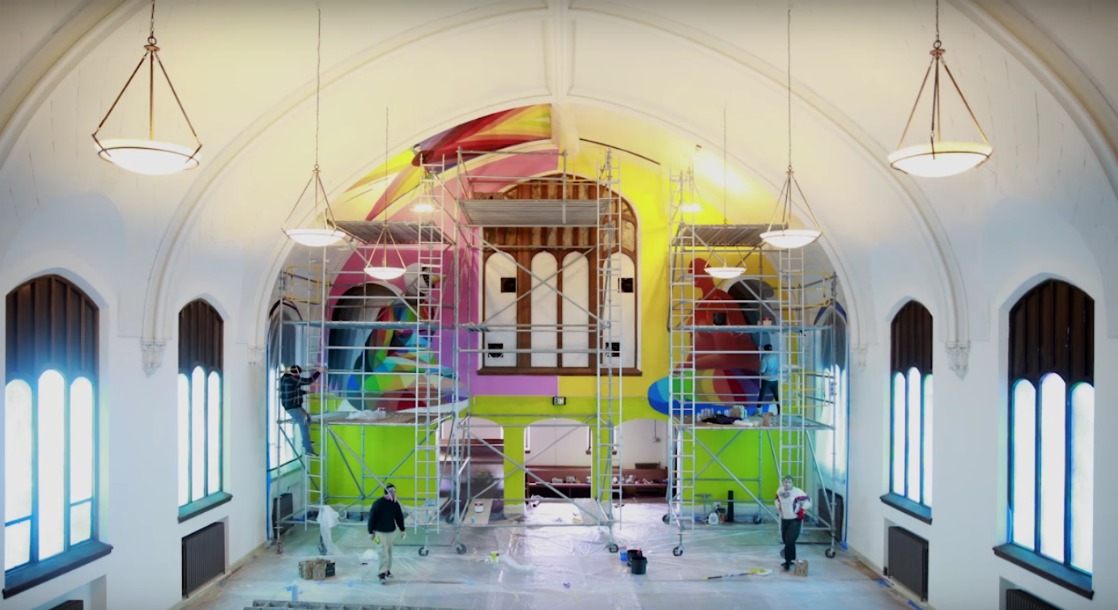The Army Corps of Engineers has put the construction of the highly controversial Dakota Access Pipeline on hold, at least for the time being. Energy Transfer Partners, the company constructing the pipeline, have planned to drill underneath Lake Oahe on the Missouri River, but drilling underneath a U.S. waterway requires the permission of the Army Corps.
Part of Lake Oahe is within the Standing Rock Sioux Tribe's reservation, and the Tribe retains hunting and fishing rights in the lake. The Tribe has been protesting the construction of the pipeline for months, arguing that it crosses through sacred land and ancestral burial sites. The Sioux are also concerned that an oil spill would contaminate the lake, which they use for drinking water and fishing. The pipeline was originally going to be routed near the city of Bismarck, but was re-routed after the citizens of the city, who are mostly white, raised concerns over their own water safety.
This Monday, the Army Corps sent a letter to all of the involved parties, explaining that further construction "cannot occur because the Army has not made a final decision on whether to grant an easement." Army Corps Assistant Secretary of the Army Jo-Ellen Darcy said that “the Army is mindful of the history of the Great Sioux Nation's repeated dispossessions, including those to support water-resources projects. This history compels great caution and respect in considering the concerns that the Standing Rock Sioux Tribe has raised regarding the proposed crossing of Lake Oahe north of its reservation."
"We are encouraged and know that the peaceful prayer and demonstration at Standing Rock have powerfully brought to light the unjust narrative suffered by tribal nations and Native Americans across the country," Standing Rock Sioux Chairman Dave Archambault II said in response to the Army Corps' statement.











